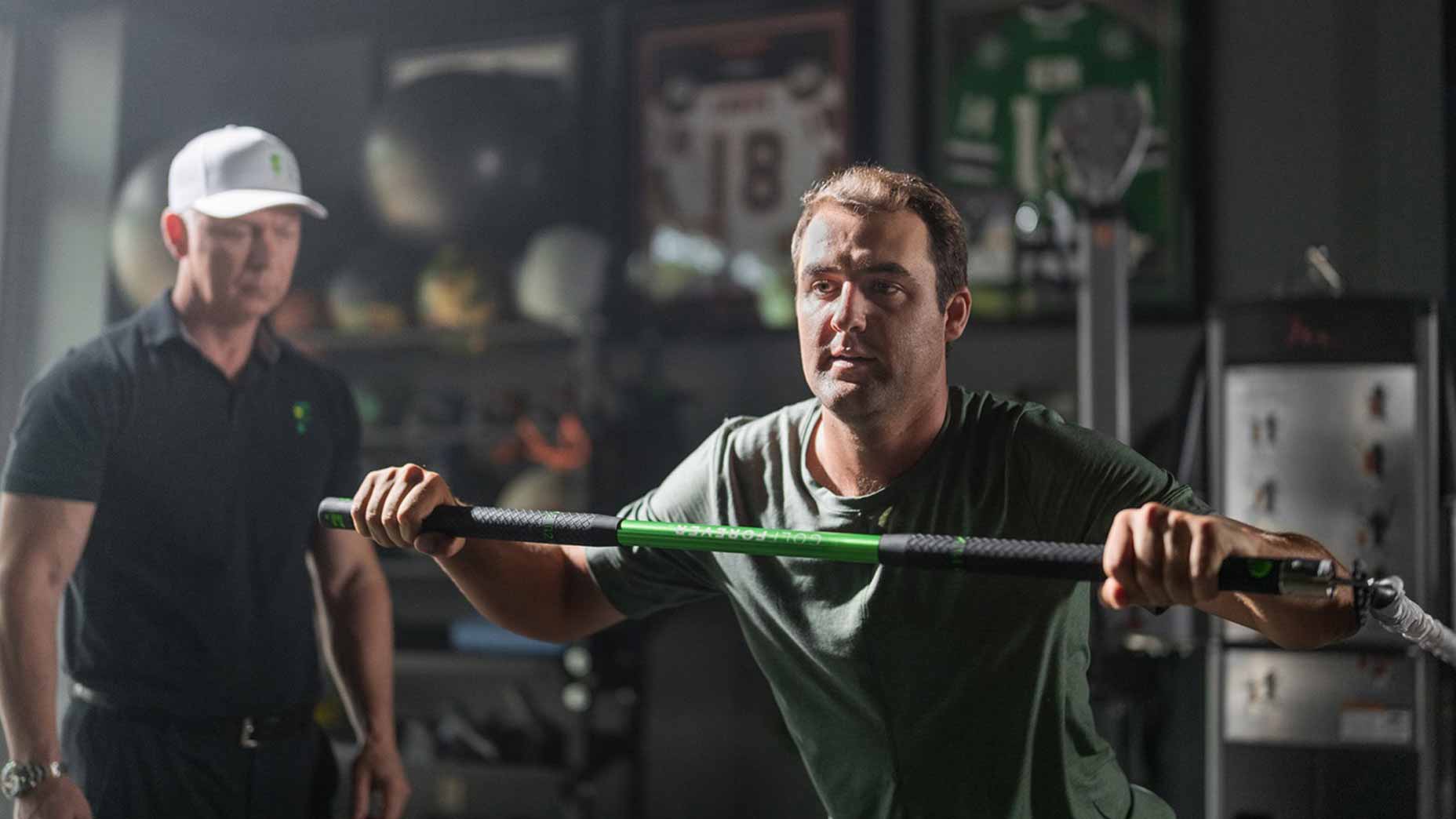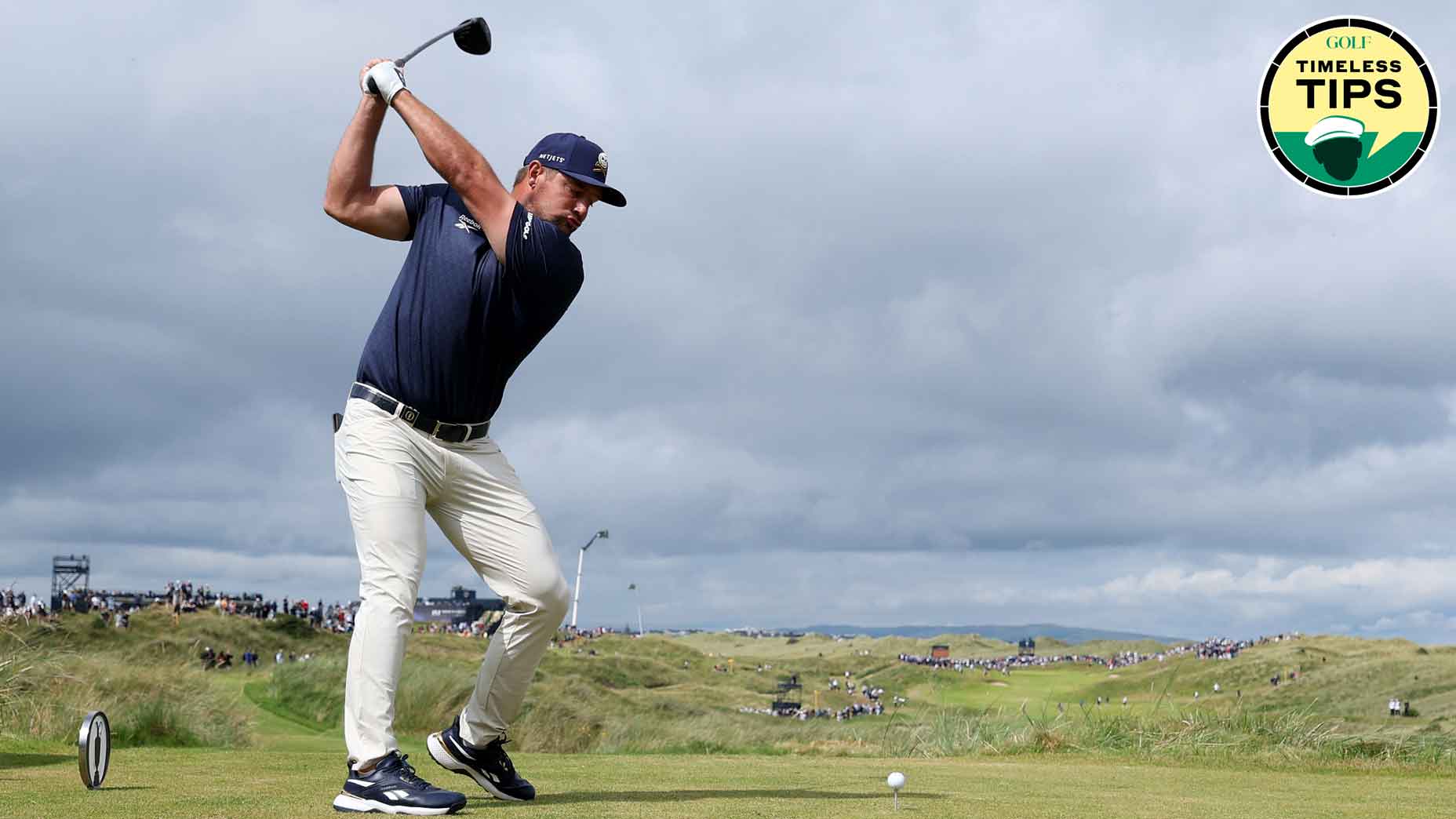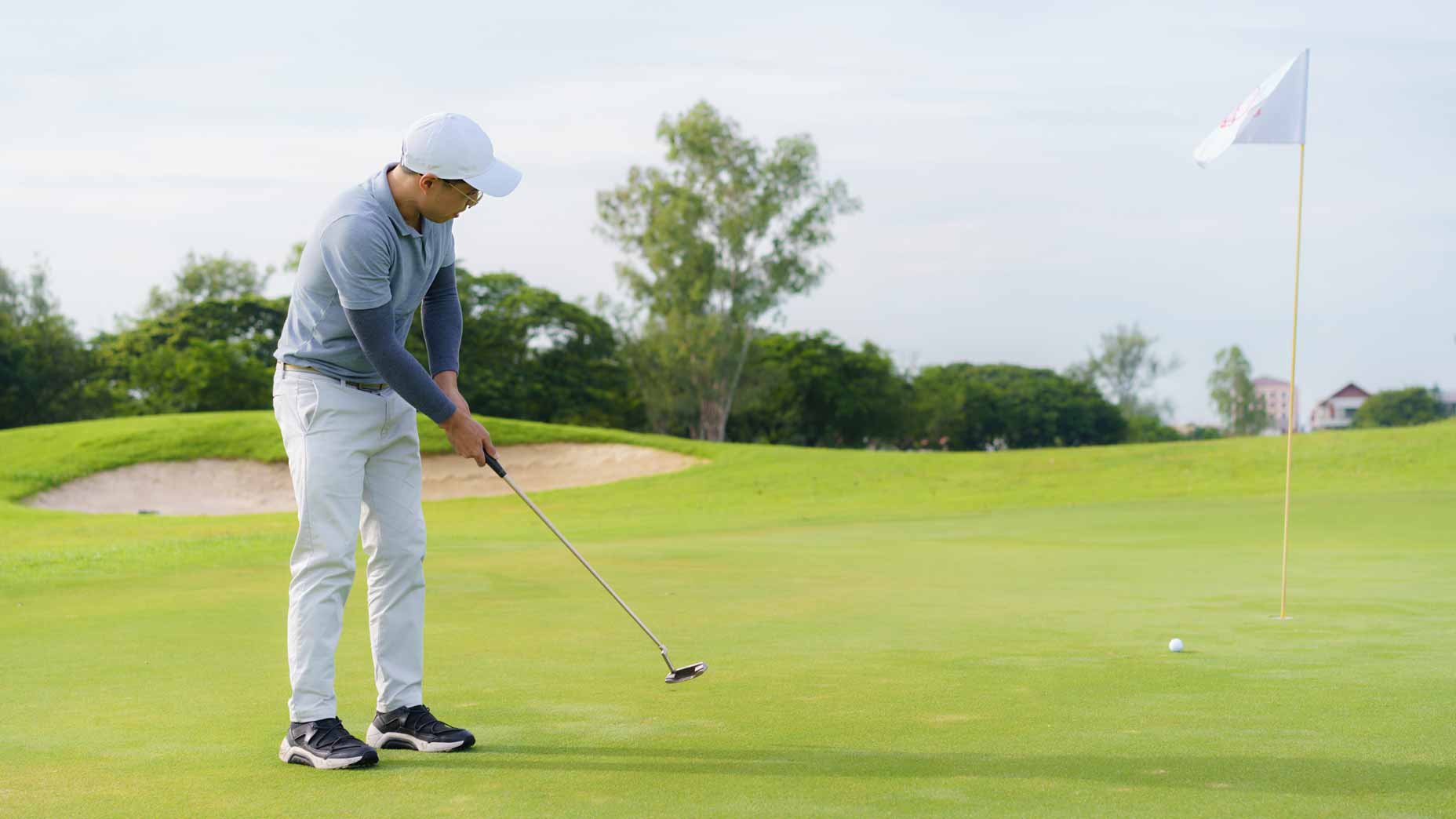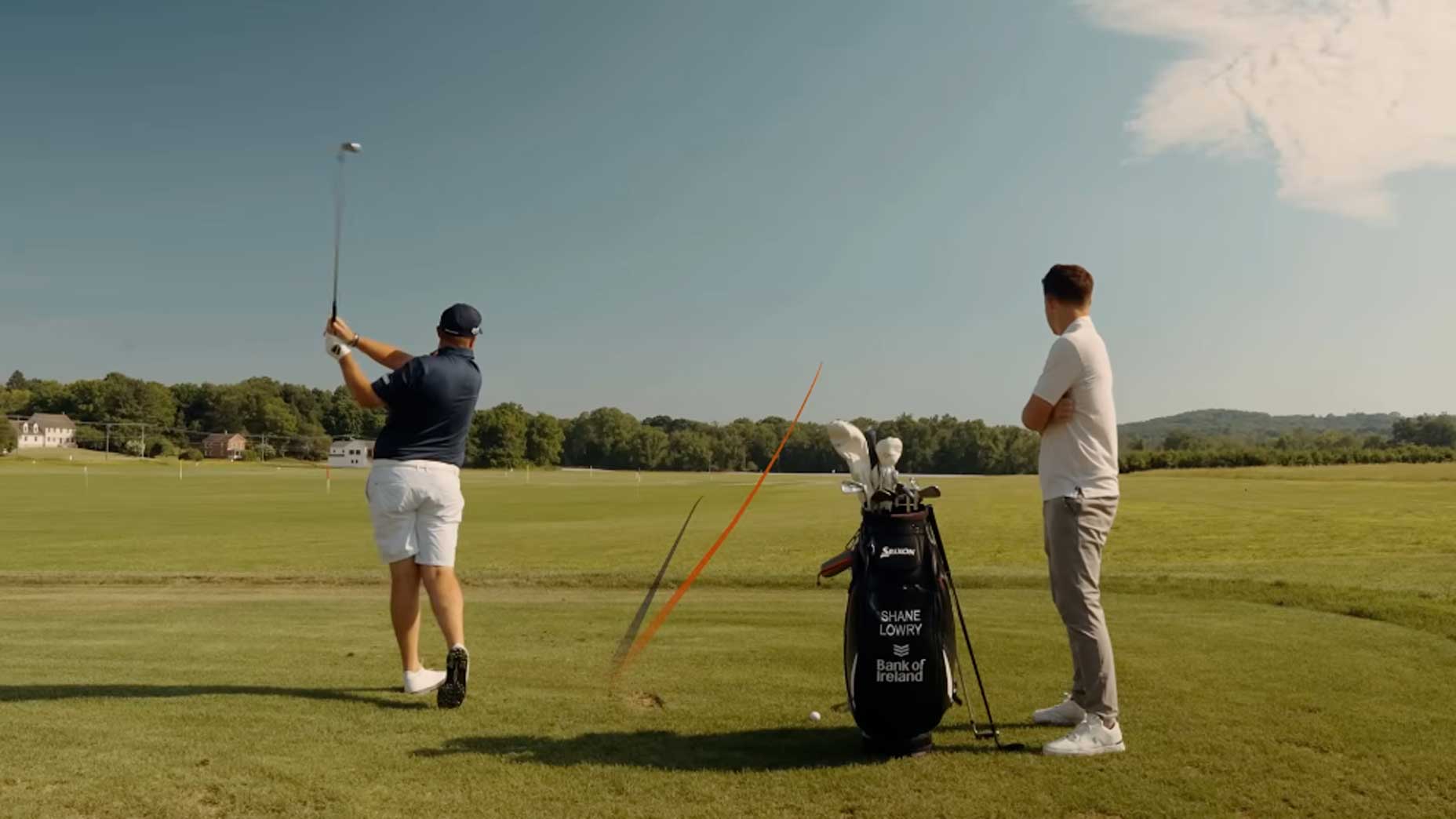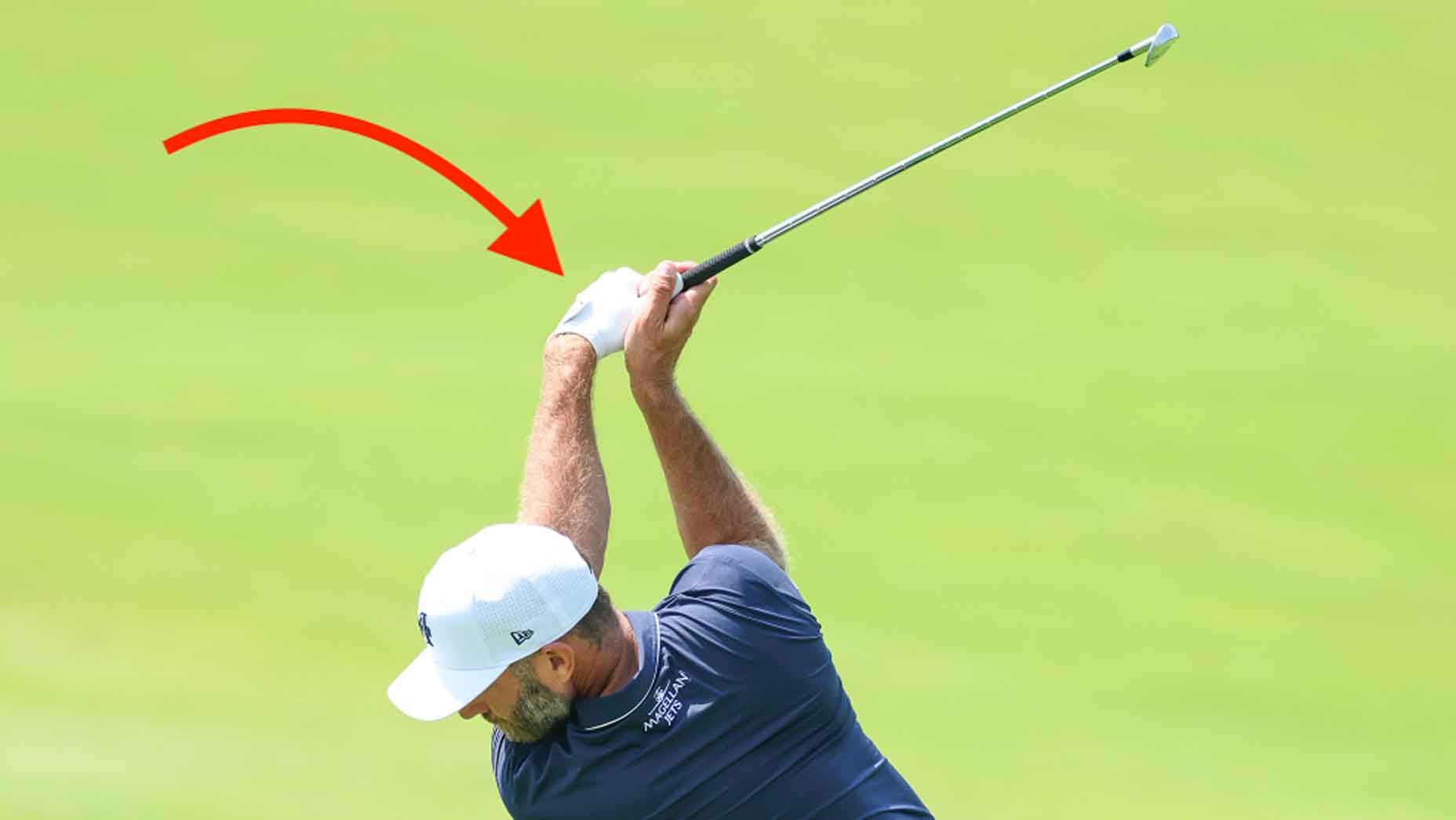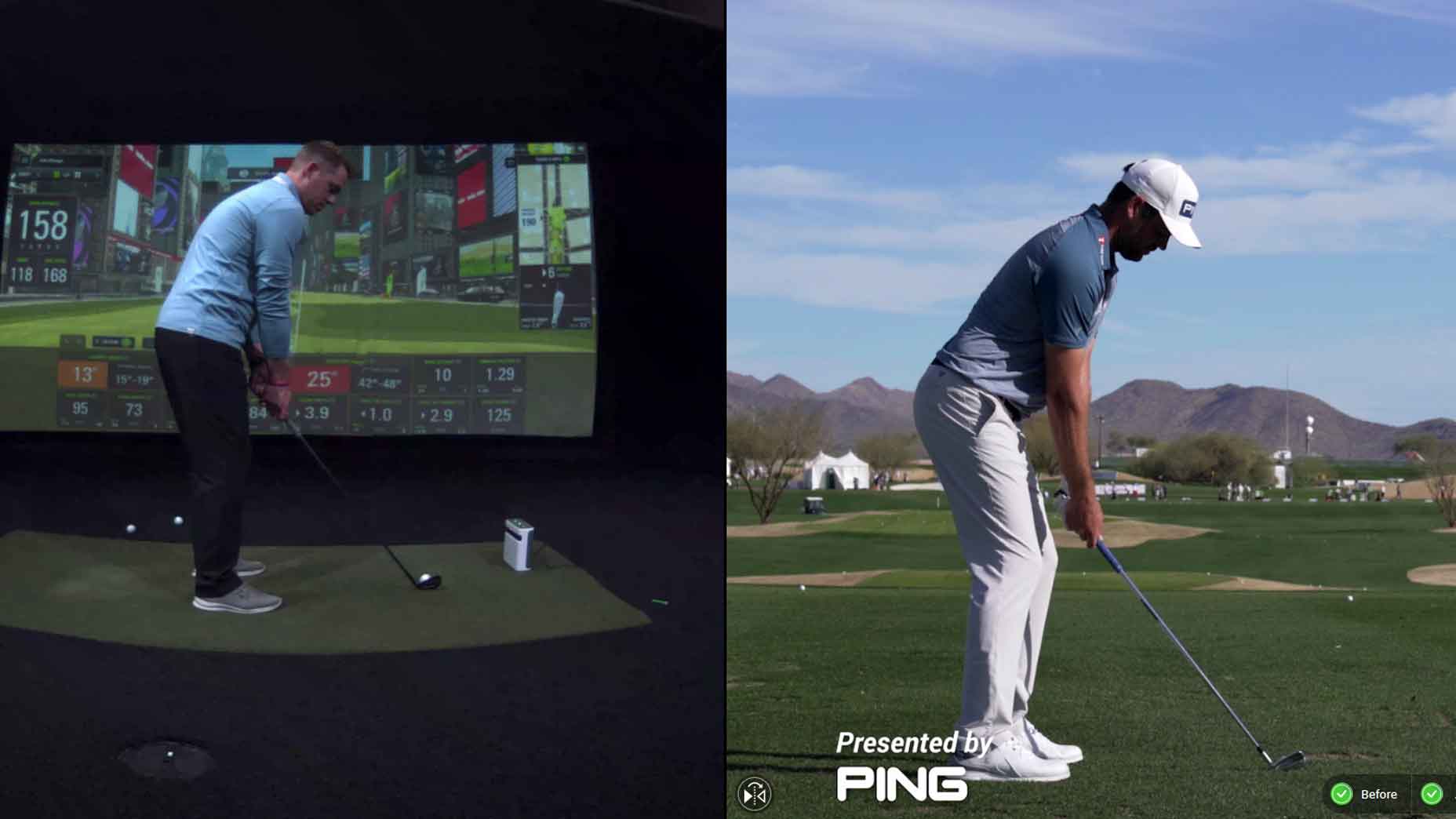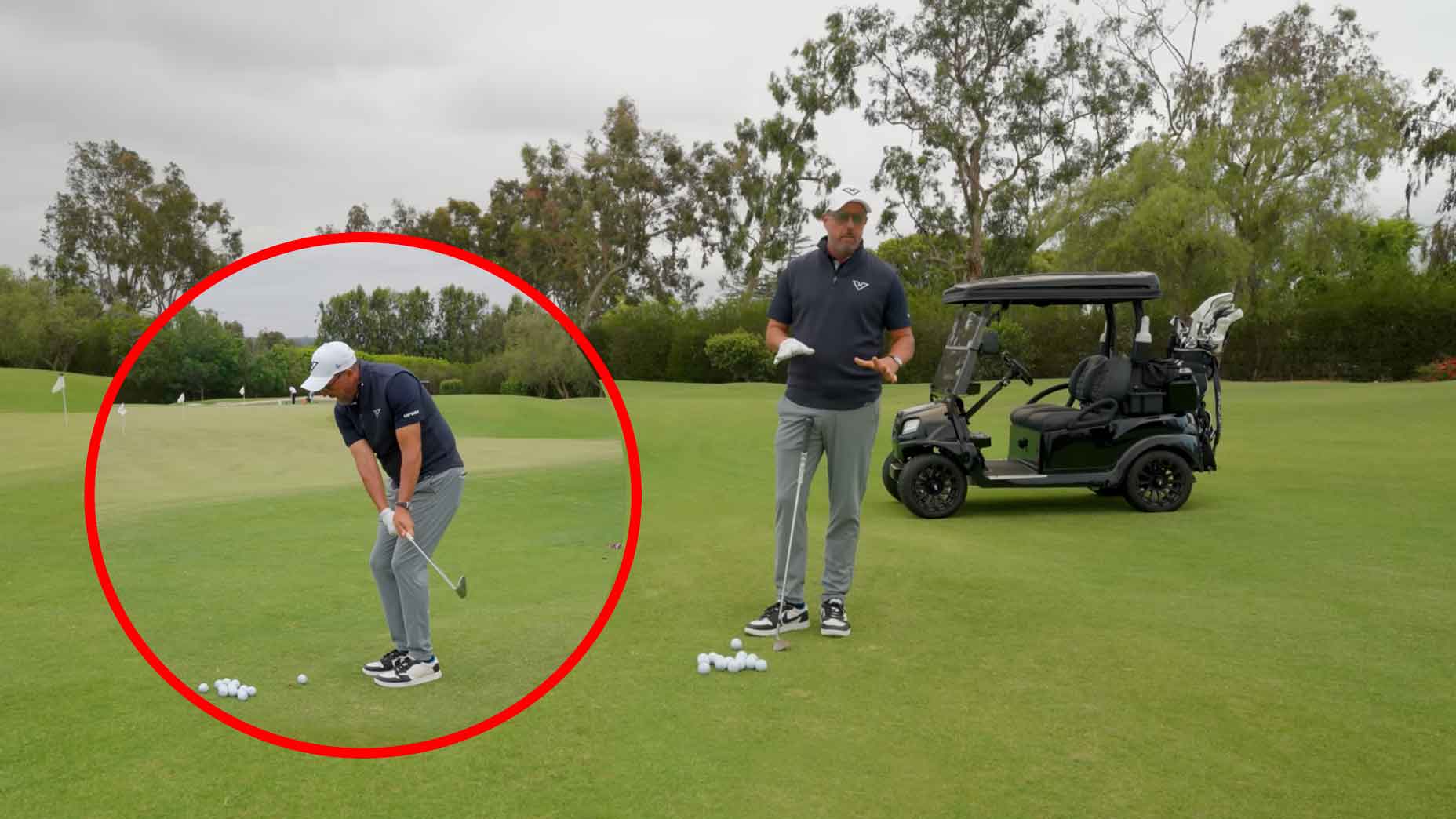Welcome to Shaving Strokes, a new GOLF.com series in which we’re sharing improvements, learnings and takeaways from amateur golfers just like you — including some of the speed bumps and challenges they faced along the way.
I’ve talked before about how a golf launch monitor has opened my eyes and helped me improve my game. Instead of just feeling differences in my swing, I can see the cold hard data that shows me exactly what happened, revealing things like carry/total distance, ball speed, launch angle and more.
More than anything, though, having a launch monitor helps explain the “why” that so many players (especially amateurs) are often looking for.
Why a slice occurred. Why you chunked a shot. Why you experienced your longest-ever drive.
Getting those answers can go a long way in providing instant feedback from a practice session, which, ultimately, highlights the parts of the game you need to work on the most.
But with so much data available from a launch monitor, it can be tricky to really identify what numbers are the most important.
So in today’s Shaving Strokes lesson, I asked GOLF Teacher to Watch Jake Thurm about what data points on a launch monitor are the ones that amateurs should focus on the most.

Uneekor EYE MINI Launch Monitor
View Product
4 important launch-monitor numbers to improve your game
Sure, it’s fun to see your total distances while hitting driver, but if your spin rate is garbage and your launch angle is poor, then you can’t really learn anything. Having this type of information from a launch monitor is meant to be valuable, not for you to boast about hitting one shot 265 yards but having no clue what you did right to accomplish it (yes, I’m guilty of that).
But as Thurm reminded me in the video above, a launch monitor is “telling a story, and it’s telling you how to get better by your next swing.”
Using the Uneekor EYE MINI Launch Monitor, Thurm had me hit some balls, then provided me with information that I needed to know in order to get better.
“There’s a lot of values that come up on every shot, about 24,” he says. “I’m going to give you the metrics to look at for an improving golfer that everyone at home can understand.”
1. Carry distance
“The first number you should look at is carry distance,” says Thurm. “Dustin Johnson became the No. 1 player in the world by just knowing his carry distances on his wedges for the temperature and altitude he was playing that week.
“So if you learn your exact carry distances, you’re already shooting lower scores and hitting more greens.”
2. Face angle
“Ninety percent of golfers slice,” Thurm reassures me. “So the first number I would look at [to help correct that slice] is face-to-path. In other words, it’s the curve you’re seeing on the ball.
“If you’re part of the 90 perfect of slicers, then you want a face closed relative to the path because that would be a curve in the opposite direction.”
3. Club path
“After that, we need a club path that’s from the inside,” Thurm tells me. “So if we’re going to look at that push-draw scenario, it’s a clubface that’s closed to the path, and that has a path from the inside. But it’s a face that’s open to the target.”
4. Low point
“Since we’re using an iron, the last number I look at is low point,” Thurm says.
“If there’s one fundamental in golf that is consistent for all players, it’s the ability to make ball-first contact. Basically, this means to hit the golf ball and then make the divot after the golf ball.
“Typically, that low point on a full swing while using a 6-iron is about three inches ahead.”

The Net Return Large 8 Pro Series – 8’w x 8’h
View Product
Latest In Instruction

Nick Dimengo
Golf.com Editor
